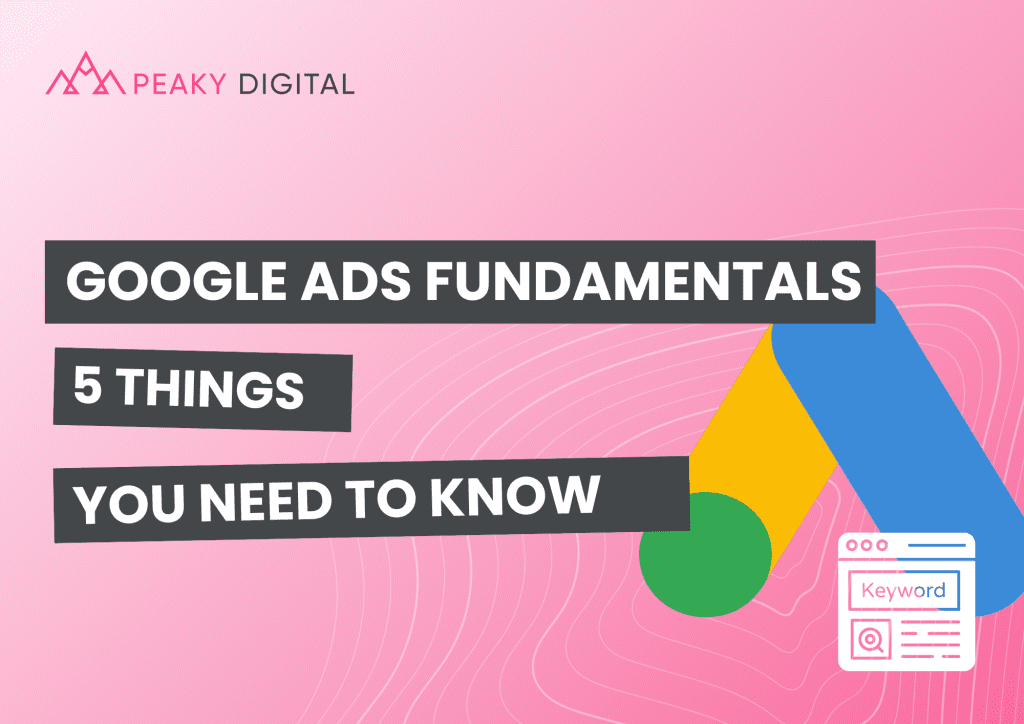
Supporting The Customer Journey Through Successful Flow Tactics
Nov 13, 2025
The customer journey is one of, if not the, most important foundations of a successful marketing…
by Natalie Temple
Aug 8, 2023

Have you ever searched on Google and noticed that the top results have the word ‘Ad’ or ‘Sponsored’ in bold? You guessed it – these are Google Ads!
When users search relevant keywords on Google (or other Google platforms such as Youtube), they’ll see a selection of paid ads along with organic results. Which paid ads they’re shown is determined by bids from the advertisers and an auction (which we’ll explore in more detail later).
Google ads is a form of PPC advertising, as you’re only charged when someone clicks on your ad. Google Ads are uniquely positioned to show your relevant ads to your target audiences, at the exact moment they’re searching for similar products or services.
While there’s a lot to learn about Google Ads, we’ve compiled the five fundamentals of Google Ads below for an easy jumping-off point:
There are several different types of campaigns to choose from, but some of the most popular are:
Each ad is made up of a group of features called assets. These are additional pieces of information included in the ad, such as product details, sitelinks or location information.
Choosing the right keywords to bid on is vital for your campaign success. Highly relevant keywords will help you to maximise your budget for the most conversions. You’ll also set a keyword match type, which determines how closely your keywords need to match a user’s search terms in order for your ads to show up. Available match types are:
Tracking your campaign performance will allow you to ensure that your strategy is working, and adjust as needed. The best metric for measuring performance will depend on the goal of your campaign. Examples include:
Google will give your campaigns a quality score, which is determined by various factors such as CTR, landing page quality and keyword relevancy. This score affects how well your ads perform, so it’s worth improving it as much as possible.
You should review your account regularly to remove irrelevant keywords, and reallocate spending so that you’re spending more money on campaigns and keywords with the most conversions.
Now that you’ve grasped the fundamentals of Google Ads, are you ready to launch your PPC campaign but not sure where to start? Get in touch with Peaky Digital. Our PPC experts will work with you to craft your campaign and get the results you’re looking for.
Brand awareness, business growth or a bigger and better ROI, our team of digital specialists are here to help you get the most from your brand. Let's start a new partnership today.

Nov 13, 2025
The customer journey is one of, if not the, most important foundations of a successful marketing…

Oct 29, 2025
Black Friday and Cyber Monday have evolved into one of the busiest shopping seasons of the…

Oct 27, 2025
When we think of social media marketing, platforms like Instagram, Facebook, and TikTok often dominate the…